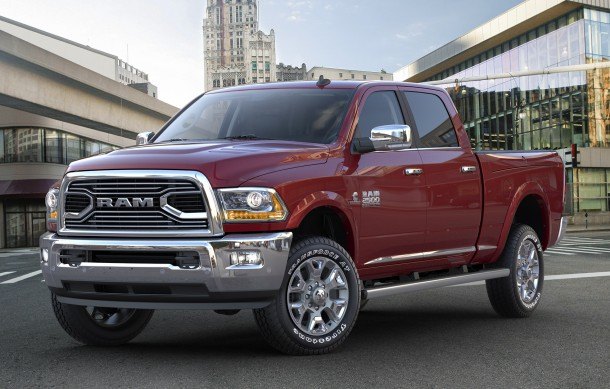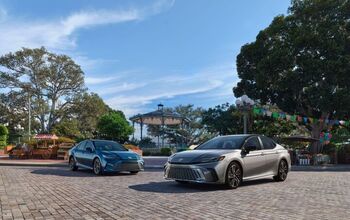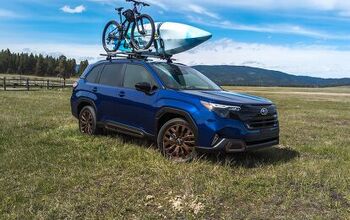Fiat Chrysler Isn't in a Hurry to Update the Ram Heavy Duty: Report

Another week, another pushed-back launch date for a next-generation Fiat Chrysler Automobiles product.
Last week, supplier sources claimed the range-topping Jeep Grand Wagoneer SUV was on hold, but this morning brings news of a delay for the next-generation Ram Heavy Duty truck line.
According to Automotive News, sources claim the Ram 2500/3500 and its chassis cab offspring won’t land on an all-new platform in 2018. Instead, the heavy-duty models should soldier on with their current DS platform and gain a minor refresh.
If true, it’s just the latest decision to scramble FCA’s long-term product plans. Just this year, FCA delayed the execution of the Dodge Grand Caravan and gave the current-generation Ram 1500 a new lease on life, even as a new 1500 bows in 2018. A similar pushback might keep the automaker’s rear-drive cars on the same platform for years to come.
Ram’s heavy-duty truck lineup was expected to drop its old bones in favor of FCA’s new DT platform sometime in 2018, bowing as 2019 models. The automaker hasn’t commented on the report.
If the delay is indeed factual, it’s hard not to see money — and FCA’s need to dole it out in limited doses — being behind the decision. Already, the automaker is scrambling to get the next-gen Jeep Wrangler and Ram 1500 out on time, and both of those products require expensive plant retooling. The Ram brand, along with Jeep, is FCA’s cash cow. Switching to an all-new heavy-duty truck would mean a temporary drop in production volume, as well as sales.
Demand for the existing Ram 2500/3500 remains healthy, so keeping a generation born in 2010 alive a little longer could make sense — even if it means selling the oldest heavy-duty pickup on the market.
[Image: Fiat Chrysler Automobiles]

More by Steph Willems
Latest Car Reviews
Read moreLatest Product Reviews
Read moreRecent Comments
- Olivehead The Honda Civic wins on looks and interior material quality and style. The Civic looks like a scaled down "real" car (i.e., midsize) while the Corolla never lets you forget what it is-a compact car, harkening back to the Tercel, etc. No comparision either in the interior materials of the Civic (a notch below Acura level) and general layout. There too, the Corolla comes off as a compact runabout. The Civic hatchback is especially cool.
- Mike Beranek While the product may appear to be "better", only time will tell. The American automotive environment can chew a car up and spit it out. Will these Chinese EVs survive like a quarter-century old Cavalier, or will they turn out like VinFast's "cars"?
- Mike Beranek This police vehicle will be perfect for when the State of Florida starts tracking every pregnancy.
- Dave M. The Highlander hybrid, a larger, heavier vehicle, gets better mpgs. Why? Also, missed opportunity - if Toyota had made this a hatchback, they could have scooped up the "want a Tesla S but not ready for a full EV" crowd, however small or large they may be....
- TheMrFreeze Difficult call...the more the mainstream automakers discontinue their more affordable models and only sell crazy overpriced EVs and trucks, the more appealing the idea of letting in cheap imported cars becomes with the buying public. If the government is going to impose tariffs on Chinese vehicles, at the same time they need to be getting with the Big 3 and telling them to fill the void with affordable models and not use the tariff as an excuse to simply raise prices. Otherwise, public pressure could see the tariffs withdrawn.I seem to recall the last administration put a 25% tariff on Chinese steel, at which point the US manufacturers immediately used the opportunity to raise their prices 25%...that needs to not happen.

































Comments
Join the conversation
How are the Cummins engines on competitiveness these days against the other two HD choices?
I'd rather FCA delayed something to get it right than to push something out that isn't ready.